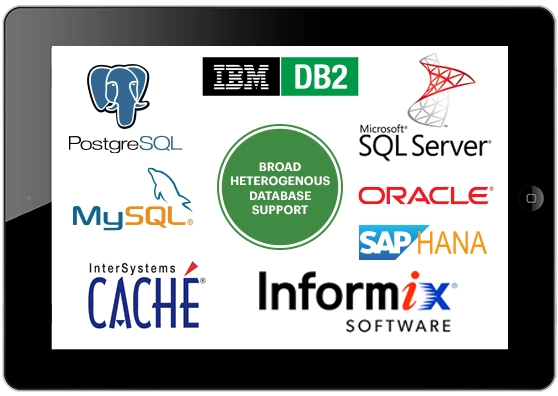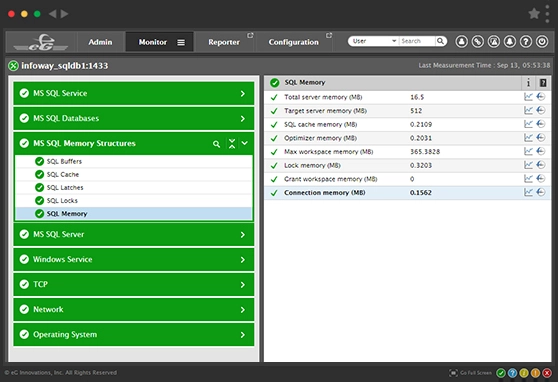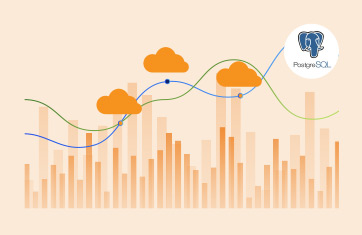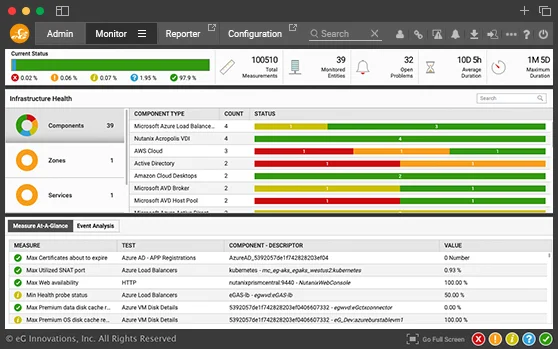Database monitoring for total performance insight
End-to-end performance management for top performance in heterogeneous database server farms
Free TrialWhat is Database performance monitoring?
Database performance issues quickly cascade and affect application performance and user experience. eG Enterprise Universal Insight is a unified performance monitoring, diagnosis and reporting solution for database performance management.
eG Enterprise provides visibility into all aspects of database performance - workload, configuration, memory buffers, I/O operations, queries, deadlocks, etc. It auto-correlates database performance with that of the underlying operating system, virtualization and storage tiers, automates and accelerates the discovery and diagnosis of database performance issues.
Database monitoring challenges
Behind every multi-tier application is a database, and good database performance is essential for optimal application performance. When database performance suffers, applications fail or slow down, resulting in poor user experience and lost business revenue.
The increasing variety of database systems poses challenges for administrators. Database systems have also evolved using technologies such as in-memory caching, optimized indexing and others. Compounding the problem is the increasing adoption of virtualization and cloud computing for database servers. When a slowdown happens, administrators have to determine whether the issue is due to the database server, or the VM it is hosted on, or the underlying storage platform?
eG Enterprise has been incredibly useful and has far exceeded our expectations. Metrics relating to SQL and missing indexes have provided critical information that we had long suspected were performance issues.
Now we have the information to address specific performance challenges.![]()
Database monitoring tool features
Next-generation Database performance monitoring and analytics
eG Enterprise provides deep visibility into database environments to accelerate the diagnosis of application performance issues, and quickly restore user experience.

What eG Enterprise universal insight for
Databases reveals
eG Enterprise provides in-depth monitoring of every aspect of database performance:
| Memory buffer utilization | Rollback activity | Root-blockers |
| Cache hit ratio | Missing indexes | Top queries by disk I/O |
| Top queries by CPU | Parse vs CPU time | Long table scans |
| Log and space usage | Active transactions | Sorts on disk |
| Data file activity | Defragmented indexes | I/O wait times |













